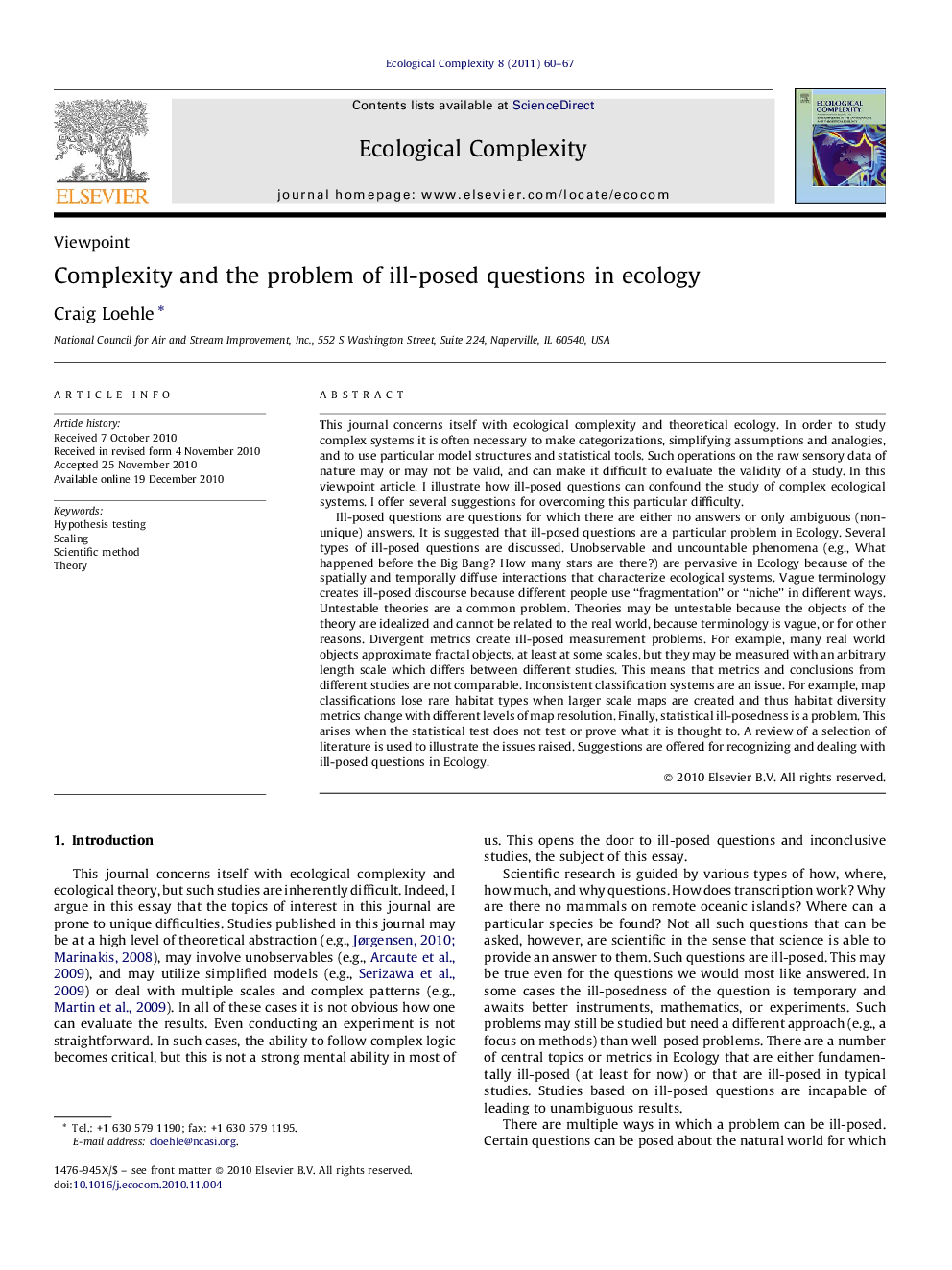| کد مقاله | کد نشریه | سال انتشار | مقاله انگلیسی | نسخه تمام متن |
|---|---|---|---|---|
| 4372630 | 1303069 | 2011 | 8 صفحه PDF | دانلود رایگان |

This journal concerns itself with ecological complexity and theoretical ecology. In order to study complex systems it is often necessary to make categorizations, simplifying assumptions and analogies, and to use particular model structures and statistical tools. Such operations on the raw sensory data of nature may or may not be valid, and can make it difficult to evaluate the validity of a study. In this viewpoint article, I illustrate how ill-posed questions can confound the study of complex ecological systems. I offer several suggestions for overcoming this particular difficulty.Ill-posed questions are questions for which there are either no answers or only ambiguous (non-unique) answers. It is suggested that ill-posed questions are a particular problem in Ecology. Several types of ill-posed questions are discussed. Unobservable and uncountable phenomena (e.g., What happened before the Big Bang? How many stars are there?) are pervasive in Ecology because of the spatially and temporally diffuse interactions that characterize ecological systems. Vague terminology creates ill-posed discourse because different people use “fragmentation” or “niche” in different ways. Untestable theories are a common problem. Theories may be untestable because the objects of the theory are idealized and cannot be related to the real world, because terminology is vague, or for other reasons. Divergent metrics create ill-posed measurement problems. For example, many real world objects approximate fractal objects, at least at some scales, but they may be measured with an arbitrary length scale which differs between different studies. This means that metrics and conclusions from different studies are not comparable. Inconsistent classification systems are an issue. For example, map classifications lose rare habitat types when larger scale maps are created and thus habitat diversity metrics change with different levels of map resolution. Finally, statistical ill-posedness is a problem. This arises when the statistical test does not test or prove what it is thought to. A review of a selection of literature is used to illustrate the issues raised. Suggestions are offered for recognizing and dealing with ill-posed questions in Ecology.
Journal: Ecological Complexity - Volume 8, Issue 1, March 2011, Pages 60–67